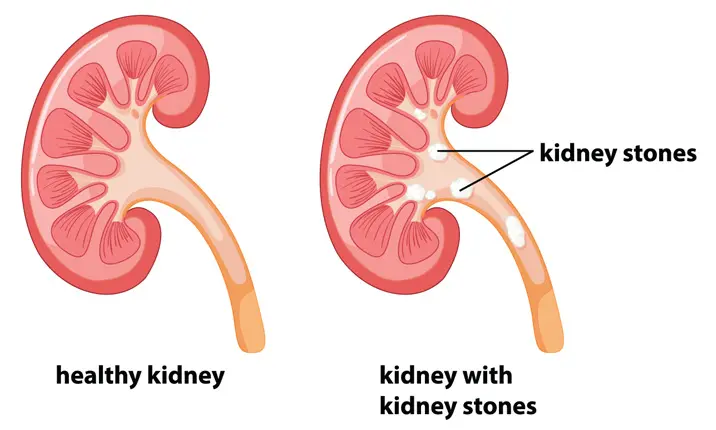Kidney stones, or nephrolithiasis, are hard deposits of minerals and salts that form inside the kidneys. While many small stones may pass through the urinary tract without causing significant problems, untreated kidney stones can lead to serious complications.
Here’s a look at some of the potential issues that can arise if kidney stones are left untreated:
1. Pain and Discomfort
One of the most immediate complications of untreated kidney stones is severe pain. Stones can cause intense pain as they move through the urinary tract. This pain, known as renal colic, typically occurs in waves and can be accompanied by nausea, vomiting, and an overall sense of discomfort. Persistent pain can significantly impact quality of life and may require medical intervention.
2. Urinary Tract Infection (UTI)
Kidney stones can increase the risk of urinary tract infections. Stones can obstruct the flow of urine, creating a breeding ground for bacteria. An infection in the kidneys, known as pyelonephritis, can be particularly dangerous and may lead to symptoms such as fever, chills, and flank pain. Untreated infections can progress to more severe health issues.
3. Kidney Damage
When a kidney stone causes a blockage in the urinary tract, it can lead to a condition called hydronephrotic, where urine backs up into the kidney, causing it to swell. Prolonged obstruction can damage the kidney tissue and impair kidney function. In severe cases, this damage can be irreversible and lead to chronic kidney disease or kidney failure.
4. Bladder and Ureteral Damage
As stones move through the urinary tract, they can cause scratches and abrasions to the lining of the bladder and ureter. This damage can lead to bleeding and the formation of scar tissue. In some cases, scarring can cause long-term complications such as urinary obstruction or bladder dysfunction.
5. Increased Risk of Recurrent Stones
Individuals who have experienced kidney stones are at a higher risk of developing additional stones in the future. Untreated stones can serve as a nucleus for new stone formation, leading to recurrent episodes and a cycle of persistent pain and complications.
6. Electrolyte Imbalances
Large or multiple kidney stones can interfere with the kidney’s ability to regulate electrolytes and fluid balance. This can result in imbalances in essential minerals such as calcium and potassium, which are crucial for various bodily functions. Electrolyte imbalances can lead to muscle cramps, weakness, and other health issues.
7. Sepsis
In severe cases, untreated kidney stones and associated infections can lead to sepsis, a life-threatening response to infection that spreads throughout the body. Sepsis requires immediate medical treatment and can lead to organ failure and potentially be fatal if not addressed promptly.
8. Psychological Impact
The chronic pain and discomfort associated with untreated kidney stones can have a significant psychological impact. Persistent pain, frequent medical visits, and the anxiety of dealing with ongoing health issues can contribute to stress, depression, and reduced quality of life.
Prevention and Management
To avoid these complications, it’s crucial to seek medical attention if you experience symptoms of kidney stones, such as severe pain, blood in the urine, or frequent urinary tract infections. Treatment options vary based on the size and type of stone and may include medications, lifestyle changes, or surgical procedures.
Early diagnosis and management can prevent the progression of kidney stones and reduce the risk of severe complications. Maintaining adequate hydration, following a balanced diet, and managing underlying health conditions can also play a key role in preventing the formation of kidney stones.
By understanding and addressing kidney stones promptly, you can reduce the risk of serious complications and maintain better overall kidney health.





Comments